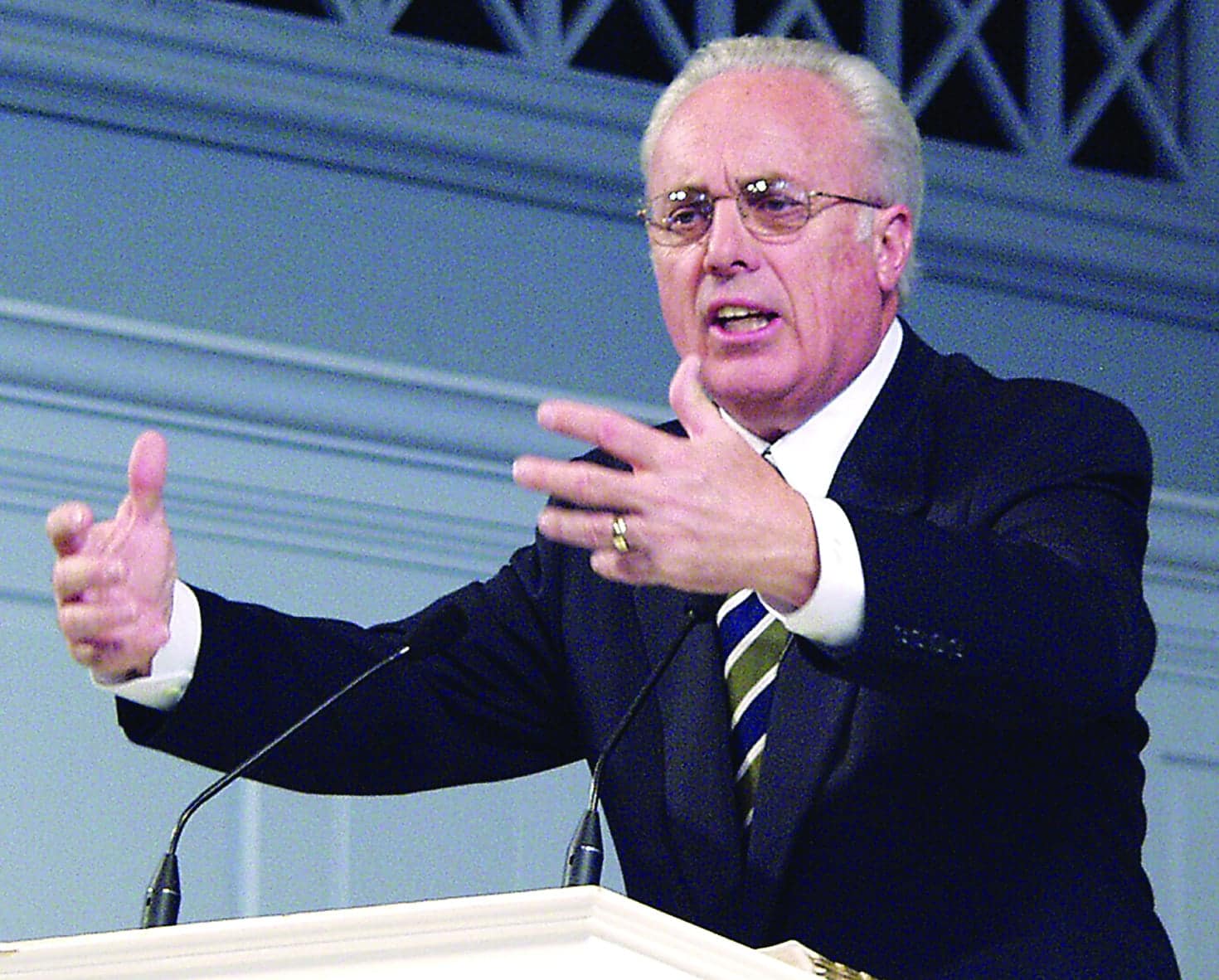By Will Hall, Message Executive Editor
SUN VALLEY, Calif. (LBM)–During a “Truth Matters Conference” held in mid-October, noted theologian John MacArthur, pastor of the Grace Community Church in Sun Valley, California, criticized the Southern Baptist Convention for passing Resolution 9 during its annual meeting in June in Birmingham, Alabama.
This resolution described two controversial ideologies, Critical Race Theory and Intersectionality, in neutral terms, suggesting that in some cases both have been misused “by individuals with worldviews that are contrary to the Christian faith” to come to wrong conclusions.
However, the two theoretical frameworks actually arose from radicals in academia.
Critical Race Theory is traced to the Harvard Law School and the founding theorist Derrick Bell who insists that “the law,” for instance, is a power structure based on “white supremacy” and “white privilege.”
Meanwhile, the idea of Intersectionality is tied to the UCLA School of Law and Kimberlé Crenshaw, the pioneer of the concept, who developed this abstract idea to help her advance the notion that “privileging of whiteness or maleness” is prevalent throughout society and the cause for the oppression of women of color.
The resolution, meanwhile, strongly underscored “Scripture as the first, last, and sufficient authority with regard to how the Church seeks to redress social ills” and promised “Southern Baptists will carefully analyze how the information gleaned from these tools are employed to address social dynamics.”
Regardless, MacArthur said the acceptance of Critical Race Theory and Intersectionality was a sign of “liberalism” taking over the SBC and called the approval of the resolution by messengers “a watershed moment” for decline of the denomination.
“I guess that in some ways it is remarkable that they lasted as long as they did when all the other denominations have been gone 30, 40, 50, 60 years ago,” he said.
“But when you decide to let the culture interpret the Scripture and you need cultural cues to translate the Bible, the horse is out of the barn.”
MacArthur is not alone in his condemnation of the SBC resolution.
R. Albert Mohler, president of the Southern Baptist Theological Seminary in Louisville, Kentucky, was among the first public critics to harshly condemn the resolution’s endorsement of the two secular concepts.
Just two days after the 2019 Annual Meeting adjourned, Mohler criticized the resolution as not saying enough about the “political” nature of Critical Race Theory and Intersectionality. During his June 14 podcast, “The Briefing,” he condemned both concepts as “Marxist” in origin and as emerging from “worldviews and from thinkers who were directly contrary to the Christian faith.”
He also rejected the Committee on Resolution’s contention that these ideas are just “analytical tools,” saying that “in the common discourse in the United States and especially in public argument and higher education, both Critical Race Theory and Intersectionality are far more than analytical tools.”
“The main consequence of Critical Race Theory and Intersectionality is identity politics, and identity politics can only rightly be described as antithetical to the Gospel of Jesus Christ. We have to see identity politics as disastrous for the culture and nothing less than devastating for the Church of the Lord Jesus Christ.”




